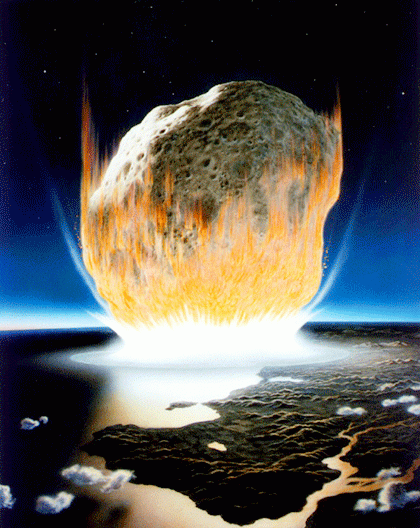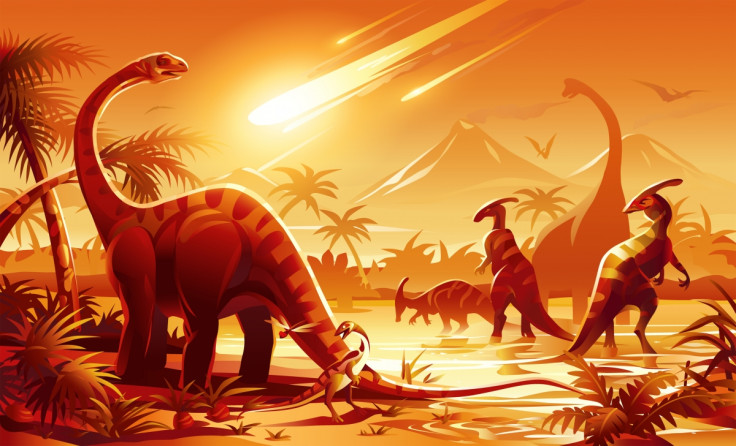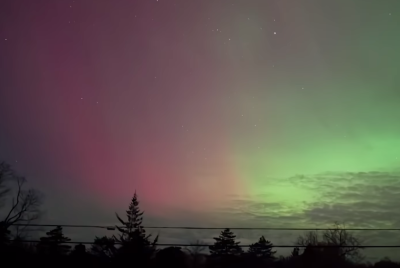Asteroid hit Armageddon bullseye to wipe out the dinosaurs, scientists believe
Potentially groundbreaking results are to be revealed in the BBC2 documentary The Day the Dinosaurs Died.
The asteroid that wiped out the dinosaurs wreaked apocolyptic havoc on Earth due to circumstance rather than size, scientists have argued.
New research suggests the relatively minor nine-mile wide asteroid — equivalent to a grain of sand hitting a bowling ball — smashed into a huge lode of sulphur-rich rock, subsequently plunging the planet into a global winter and pulverising numerous species.
Scientists drilled a mile down into the 20-mile deep impact crater, located in the Gulf of Mexico, off the Yucatan peninsula, in a bid to further understand how the catastrophic end to the dinosaurs' 150 million year reign on Earth came to such an abrupt end 68 million years ago.
The site, dubbed Chicxulub after its discovery by geologists in 1991, has long baffled scientists, who have so far been unable to explain the ill-fitting scale of the impact — known to be 110 miles wide — compared to its catastrophic consequences.
But, after analysing extract samples from the crater, the team, led by Sean Gulick, professor of geophysics at the University of Texas at Austin and Professor Joanna Morgan, of Imperial College London, believe an answer may have been found.
"That asteroid struck Earth in a very unfortunate place," Gulick told The Sunday Times.

"Had the asteroid struck moments earlier or later, it might have hit deep water in the Atlantic or Pacific. That would have meant much less vaporised rock. Sunlight could still have reached the planet's surface, meaning what happened next might have been avoided."
Morgan added: "The samples suggest more than 100bn tons of sulphates were thrown into the atmosphere, plus soot from the fires that followed.
"That would be enough to cool the planet for a decade and wipe out most life."
As a consequence the global surface air temperature decreased by at least 26C, with three to 16 years of subfreezing temperatures and a recovery time longer than 30 years, a recent research paper from Julia Brugger, of the Potsdam Institute for Climate Impact Research, concludes.
The results are to be revealed in the BBC2 documentary The Day the Dinosaurs Died, scheduled to air on Monday (15 May).
This theory mirrors a hypothesis put forward by Steve Brusatte, a paleontologist at Edinburgh University.
In a 2014 report in the Biological Reviews, Brusatte found dinosaurs were faring well at the time of impact. However, the strike coincided with a period in the dinosaur biodiversity timeline that reduced the plant eating herbivore types who could have survived the impact.
The key to human life?
Programme presenters, Professors Alice Roberts and Ben Garrod, gained unique access, in part due to being scientists themselves.
Garrod, an evolutionary scientist, added: "Had the asteroid struck moments earlier or later, it might have hit deep water in the Atlantic or Pacific. That would have meant much less vaporised rock. Sunlight could still have reached the planet's surface, meaning what happened next might have been avoided."

© Copyright IBTimes 2025. All rights reserved.






















